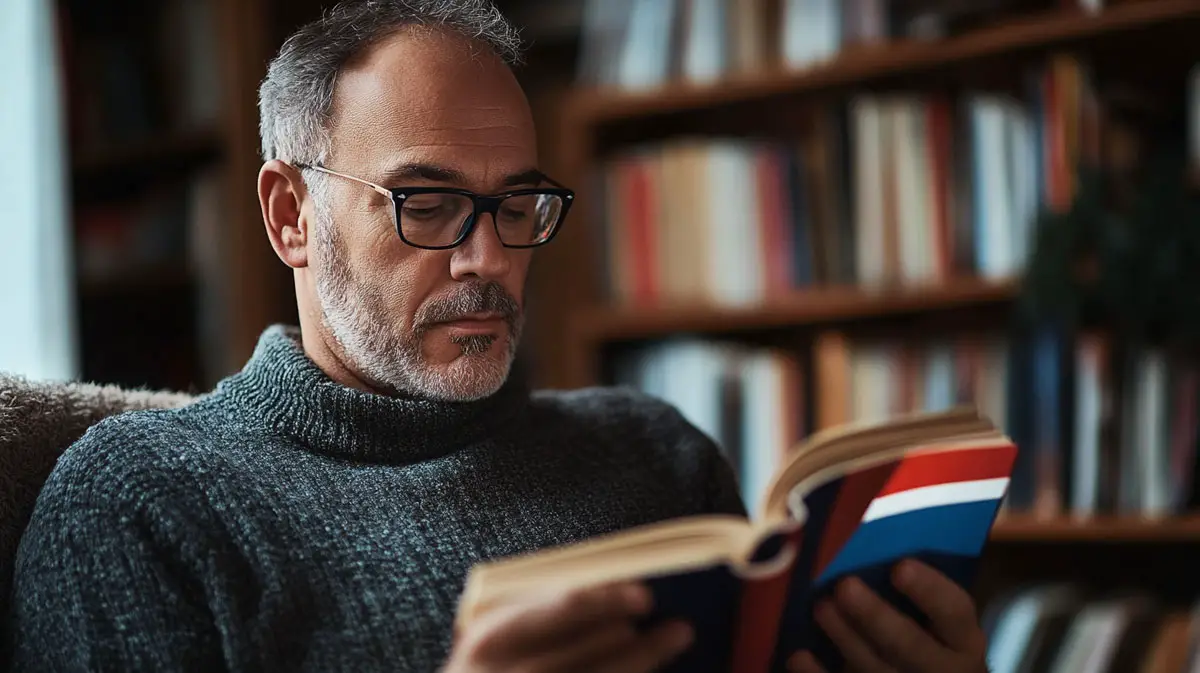What’s the Best Way to Learn a Language as an Adult?

Learning a new language as an adult can feel like a mountain to climb. The effortless absorption of childhood is behind us, and squeezing study time into a packed schedule is no picnic. But the payoff, whether it’s nattering with locals on holiday, diving into a novel in its original form, or keeping your mind nimble, makes it all worthwhile. So, how do you crack it? Let’s look at some down-to-earth, engaging ways to learn that suit grown-ups, blending classic techniques with a bit of modern magic.
Dive into immersion (without leaving home)
Immersion often gets top billing for language learning, and it’s easy to see why. Being surrounded by a language nudges your brain to pick it up naturally.
We know what you are thinking: “I’m not upping sticks to France or Korea anytime soon!” True, but you can still weave immersion into your day. Pop on a podcast or some tunes in your target language while you’re pottering about, watch a film (subtitles on at first, then off when you’re feeling bold), or slap sticky notes with new words on your fridge. It’s all about regular, bite-sized doses that build up over time.
You can make this method work for trickier languages, and even for classical languages. Some folks keen to study ancient languages use active methods, speaking and writing from the get-go, to bring them to life. It’s a fresh way to see these tongues as more than just museum pieces.
Get talking straight away
Too many adult learners hold off speaking until they’ve “mastered” the basics. Here’s the truth: that moment never arrives! Start chatting early, even if it’s just mangling a few phrases. It boosts your confidence and trains your brain to think in the language. Link up with a language buddy on apps like Tandem, join a local meet-up, or mutter to yourself. Honestly, describing your day aloud is a solid start.
A good teacher can smooth this out, turning stilted sentences into proper chats. It’s less about drilling grammar and more about finding your voice, whatever the language.
Read and write what grabs you
Textbooks have their place, but they can be boring. Instead, grab something you’d enjoy anyway, such as graphic novels, short tales, or song lyrics. It keeps you hooked, and jotting down thoughts about what you’ve read locks it in. Keep it simple: try a kids’ book like Le Petit Prince for French, or a food blog for Spanish. Match the language to your passions.
Love the classics? Wrestling with original texts can be a thrill. It’s not just about unpicking the words. It’s feeling the pulse of the language as it was written.
Build a habit, not a sprint
Adults often treat language learning like a mad dash, cramming vocab and rules into late-night sessions. But slow and steady trumps that every time. Twenty minutes a day beats sporadic marathons. You can use a language-learning app for quick hits, or set a daily target: five words, one sentence, a snippet of radio. Just make sure it is manageable, so it will keep you moving forward.
Tap into community and culture
Languages come alive through people and their worlds. Joining a group, be it a class or an online chat, keeps you on track and adds a social buzz. Digging into the culture helps too. Whip up a curry, binge a foreign series, or mark a holiday. Linguist Stephen Krashen put it well: “Language acquisition does not require extensive use of conscious grammatical rules, and does not require tedious drill.” It’s about real, human links.
Pick tools that suit you
There’s no magic formula, so play around. Visual learners might love flashcards or diagrams. If you’re all about sound, podcasts or audiobooks hit the spot. Hands-on? Write letters or cook from foreign recipes. Online courses can offer structure, but the best method is the one you’ll stick with.
Give yourself a break
Above all, be kind to yourself. Adult life is hectic, and our brains aren’t as bendy as a kid’s. But we’ve got focus and experience on our side. Fluffing a sentence isn’t failure, it’s progress. Fluency takes time, so enjoy the ride.
What’s the best way to learn a language as an adult? It’s whatever clicks for you, whether that’s talking with a mate, reading a poem, or belting out a tune in the shower. Start small, keep curious, and let it unfold. You might surprise yourself with what you can say before long.










